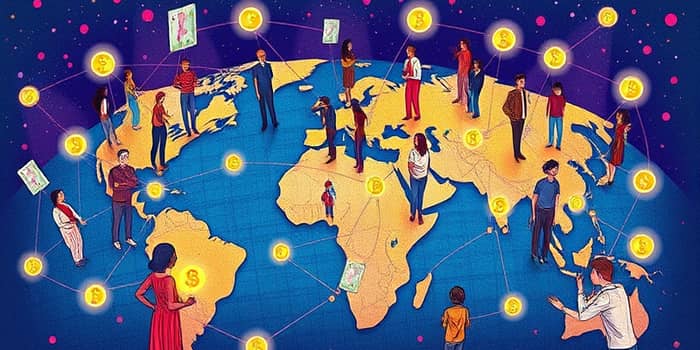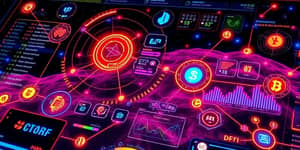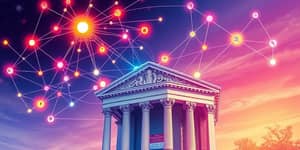
Decentralized Autonomous Organizations, or DAOs, are reshaping how communities make decisions, allocate resources, and build collective power. By leveraging transparent by code and community frameworks, they replace traditional hierarchies with collaborative networks. In this article, we explore the historical context, core mechanisms, real-world applications, and emerging challenges that define this revolutionary approach to governance.
The rise of DAOs signals more than just a technological innovation; it embodies a shift towards democratize decision-making across borders and unlocking new forms of participation. As thousands of individuals join these digital collectives, they experiment with novel ways to pool ideas, funds, and responsibilities without relying on a central authority.
Governance has evolved from monarchies and closed councils to corporate boards and shareholder meetings. Each step sought to address inefficiencies, power concentration, and lack of representation. Traditional organizations often faced bottlenecks when scaling or adapting to rapid change.
The introduction of blockchain technology created a gateway for communities to enshrine rules into code. Smart contracts automated execution, ensuring decisions could be carried out without intermediaries. This evolution marks a turning point: governance that is immutable, transparent, and accessible to anyone with an internet connection.
At the heart of every DAO lie a few foundational elements. Together, these components form the backbone of a self-governing community that can operate across borders and times zones seamlessly.
These elements combine to support global reach and diverse participation, making DAOs vibrant, borderless communities directed by members rather than executives.
Not all DAOs are built alike. Governance design can significantly influence how power flows, how decisions are made, and how resilient the organization becomes when facing internal or external pressures.
By comparing these models, communities tailor governance to their values—prioritizing economic incentives, social equity, or a mix of both. Each approach carries trade-offs in transparency, efficiency, and inclusivity.
DAOs have moved from theory into practice, showcasing the potential of decentralized governance across industries. They challenge established institutions and demonstrate alternative paths to collaboration.
In each case, DAOs streamline processes that were once bureaucratic and slow. Proposals pass or fail in real-time, funding is distributed immediately upon approval, and every transaction is auditable on-chain.
These examples underline the promise of groundbreaking innovative governance experiments that empower individuals to shape projects they believe in, breaking down barriers between leaders and participants.
While DAOs offer unprecedented advantages, they also face hurdles that test their viability and integrity as governing bodies.
Addressing these challenges requires a mix of technical safeguards, community norms, and sometimes selective centralization to maintain agility without sacrificing the ethos of decentralization.
The maturity of DAOs will depend on continuous innovation in governance design and legal frameworks. Experimentation with hybrid governance for balanced accountability is already taking shape, blending on-chain voting with delegated committees for specialized tasks.
Emerging trends include integration with traditional legal entities, such as registering in jurisdictions that recognize DAOs as legal persons. This hybridization aims to bridge the gap between trustless on-chain protocols and real-world enforceability.
By leveraging advanced voting mechanisms and reputation systems, DAOs can protect against manipulation while rewarding genuine contributions, paving the way for sustainable and equitable communities.
Looking forward, we envision DAOs powering everything from open-source development and impact investing to global relief efforts and cultural initiatives. Their inherent flexibility and transparency position them to reinvent how communities around the world organize and achieve collective goals.
In embracing decentralized governance, we tap into the wisdom of crowds while amplifying individual agency. As this movement grows, it will continue to challenge assumptions about power, ownership, and collaboration—ushering in a new era of community-led impact.
References













